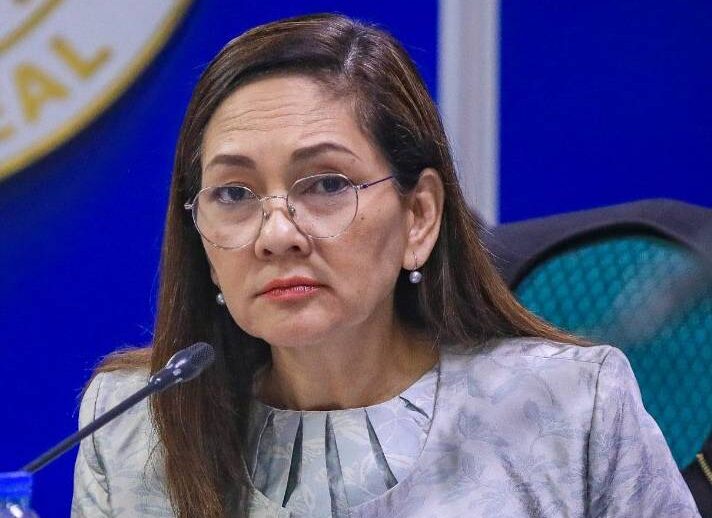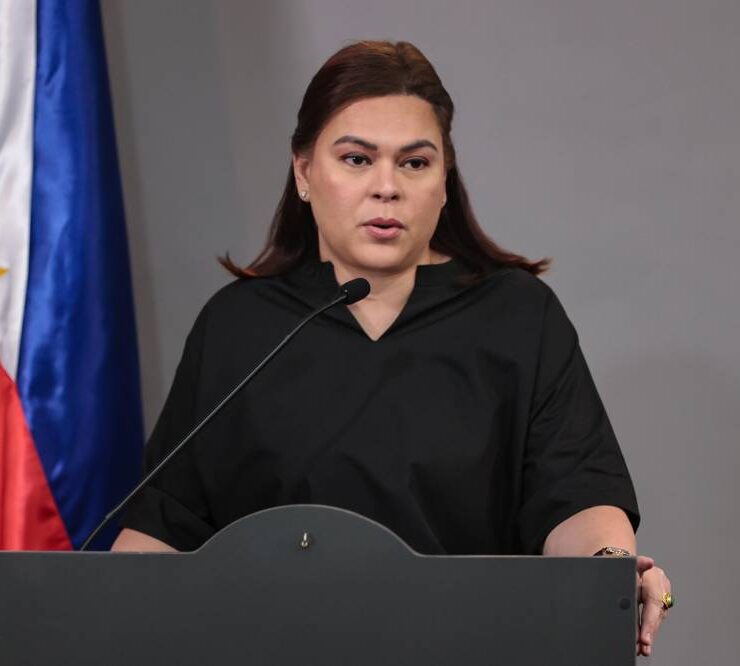Risa moves to save ‘sex ed’ bill, blames disinfo

Sen. Risa Hontiveros on Wednesday filed a revised sex education bill after seven of her colleagues withdrew their support for the controversial measure aimed at stemming the rise of teenage pregnancies in the country.
Hontiveros, principal author of Senate Bill No. 1979, or the proposed Prevention of Adolescent Pregnancy Act, moved swiftly to introduce a substitute bill, which addresses concerns raised by her fellow senators and some conservative religious groups.
She said it was unfortunate that the debates on the bill were “muddled by so much disinformation.”
“I understand their possible considerations and I wish to take this opportunity to inform this body that I have given much thought to the opposition raised against the bill,” Hontiveros said during Wednesday’s plenary session.
Under the substitute measure, Hontiveros removed the phrase “guided by international standards,” which conservative advocacy group Project Dalisay led by former Chief Justice Maria Lourdes Sereno had claimed would teach lewd and inappropriate lessons on sexuality to Filipino children.
The amended bill also now includes a provision declaring that comprehensive sexuality education (CSE) would be taught only to adolescent students age 10 years old and above.
“We have also introduced a provision guaranteeing academic and religious freedom,” Hontiveros said.
“Legislation, as they say, is the art of the possible. And while my personal convictions maintain that [the bill] is a reasoned and appropriate response to this national crisis that is teenage pregnancy, I deem it better for us to be united in our goal to bring down teenage pregnancy in the Philippines,” she added.
Further dialogues
Hontiveros also assured her colleagues that she was open to recommendations to improve the measure.
The seven senators, in separate letters, notified Senate President Francis Escudero that they were withdrawing their signatures from the committee report on SB 1979, which was backed by the Council for the Welfare of Children, health advocates and other state agencies.
In their letter, Senators JV Ejercito, Nancy Binay, Cynthia Villar and Christopher Go stated: “While we believe that the prevalence of adolescent pregnancy is an issue that must be urgently addressed, it is our position that further dialogues with stakeholders is essential in order to accurately dispel misconceptions and remove objectionable portions from the bill.”
Senate President Pro Tempore Jinggoy Estrada and Senators Loren Legarda and Ramon Revilla Jr. also withdrew their signatures.
“I arrived at this informed decision after I have carefully evaluated the sentiments and grave concerns of various private organizations that have expressed strong opposition [to] the proposed legislation,” Estrada said.
Revilla, for his part, said he made the decision “upon further study and taking into consideration the recent sentiments and information voiced by our countrymen.”
Sen. Sherwin Gatchalian, chair of the Senate committee on basic education, said he was looking forward to participating in the plenary deliberations on the measure.
“When I sign a committee report, it’s for the purpose of [allowing] the measure to be debated on,” Gatchalian told the Inquirer.
Other senators who signed the committee report were Pia Cayetano, Grace Poe, Robinhood Padilla, Lito Lapid and Minority Leader Aquilino Pimentel III.
Sen. Ronald dela Rosa affixed his signature “with reservation.”
Former Sen. and now Education Secretary Juan Edgardo Angara also signed the report as the then chair of the Senate finance committee.
No CSE suspension
Angara, meanwhile, said the Department of Education (DepEd) cannot stop the implementation of CSE because they are mandated by the law to do so.
He was reacting to the call of Project Dalisay, through Sereno, for its suspension. The group claimed that CSE was teaching “early childhood masturbation” to zero to 4-year-old children.
Angara clarified that there was no mention of “masturbation” in the laws that mandate DepEd to implement CSE in schools, namely, Republic Act No. 10354, or the Responsible Parenthood and Reproductive Health (RPRH) Act of 2012; and RA 8504, or the Philippine AIDS Prevention and Control Act of 1998. Nonetheless, he said, a review was still underway.
Under the RPRH law, DepEd is mandated to include CSE in schools but must deliver it “in a manner that is consistent with the religious convictions of the learners’ families.”
As for the AIDS prevention law, DepEd, along with the Commission on Higher Education and the Technical Education and Skills Development Authority, should integrate instruction on the prevention of HIV/AIDS based on the information provided by the Department of Health.
Good intention
“When we checked, there was nothing [in the laws]. Maybe they were referring to the curriculums being taught in other countries,” Angara said at the weekly Kapihan sa Manila Bay.
He read parts of SB 1979, which he said has a “good intention… to reduce the number of teenage pregnancies.” But he agreed that the President was “right” that CSE should be age-appropriate. President Marcos had earlier vowed to veto the measure for being “abhorrent.”
“We should not introduce concepts that are either offensive or unsuited with the age group of children,” he said. “So, definitely, we will follow the directive of our President.” —WITH A REPORT FROM DEMPSEY REYES





















